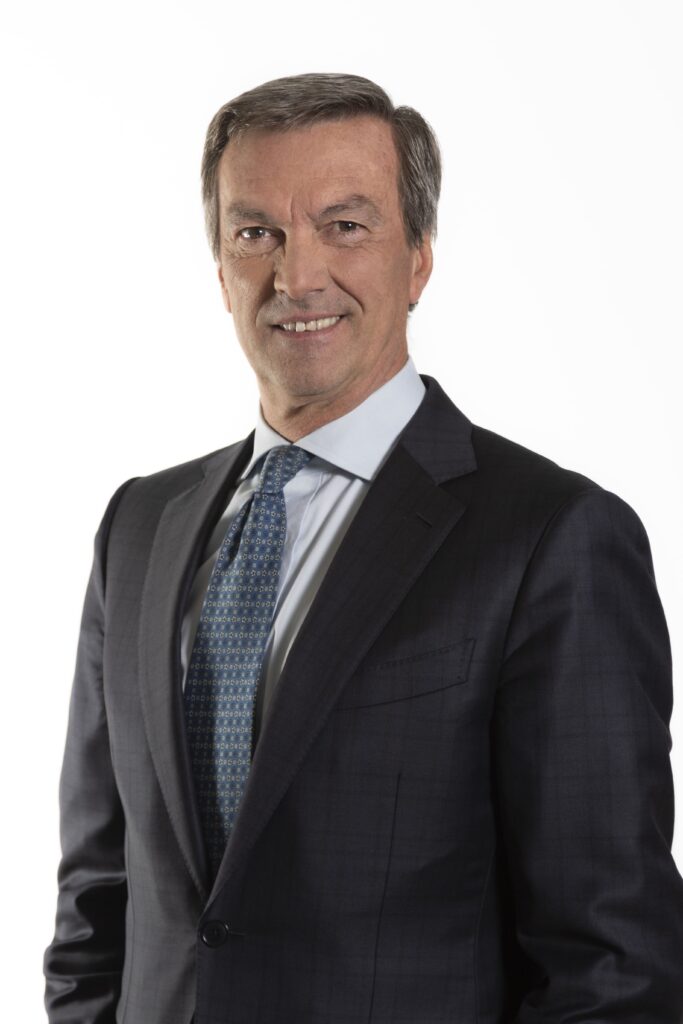We translate and publish the market view of our portfolio manager Maurizio Novelli, taken from Focus Risparmio. The original article in Italian can be found at this link: https://bit.ly/3YtT0wA
After the latest Eurozone inflation figure betrayed analysts’ expectations, hoping for the rapid decline in inflation with consequent monetary easing would not only be unrealistic but even counterproductive. Indeed, aiming for a soft landing now would mean exposing oneself to a new inflation shock, with further pressure on rates and serious problems with the sustainability of public but especially private debt. Maurizio Novelli, manager of the Lemanik Global Strategy Fund, is convinced of this, saying that the new economic scenario is here to stay. Euro, Swiss franc and yen the currency allocations to focus on for the next three years while at the asset class level focus on short-term and infrastructure but being careful with equity.
Living with zero rates and perennial central bank 'assistance' may be perceived as permissible by those who began working in finance after 2008, but longtime practitioners know that this is a historical anomaly born of an atypical environment
For the fund manager, the reconstruction is simple: “With the outbreak of the global financial crisis, central banks delved into unconventional monetary policies. Since then, financial markets have consistently blackmailed them with the threat of a meltdown if they removed zero rates, and under such blackmail, their accommodation has lasted 15 years producing an explosion of speculative finance, a surge in systemic indebtedness and, eventually, the inflation we are currently experiencing.” A stark view from which an equally stark conclusion can only flow: “The current scenario provides a legitimate reason to stop Quantitative Easing and raise interest rates to return to conventional policies.”
For Novelli, therefore, there is nothing to fear: “We are just returning to normal and interest rates are still low relative to the current inflationary dynamics.” If anything, the problem is related to expectations, the same as those of believes that Qe is the norm. And in this group the fund manager counts not only markets but also policy makers. “For the first time, we are witnessing a no-holds-barred struggle between these players,” he explains, as the former try to counter inflation with tighter financial conditions, the latter push to loosen those conditions, and the latter implement expansionary and reflationary fiscal policies. With the paradoxical result of invoking a financial-economic crisis to finally have new accommodation.” In other words, “We hope to implode so we will be bailed out again by the government budget and the Fed.”
In such a context, Novelli believes that positioning for a transitory inflationary scenario is very risky, as there are structural phenomena on the carovita related to geopolitical and macroeconomic events that cannot be managed by central banks: from the transitory nature of energy declines to an eventual end to the war in Ukraine with consequent reconstruction of the country and higher commodity prices, passing the reflationary effect that could result from a full reopening of China. Here is the reason for his conviction: “The spike in interest rates will be much more related to recession risks than to the probably transitory spike in inflation, and these will remain higher than the market is discounting today, unless a non-technical recession comes along with a consequent downward revision in corporate earnings.” “Thus,” the manager concludes, “expectations of a return to the abnormal environment of low rates and QE would require a further negative shock on the economic front. Therefore, the downside scenario for equity markets remains intact and the recent broad rebound, built on unlikely scenarios, is a sell on rally.
For Novelli, the current long position in Eurozone markets risks being crumbled by higher-than-expected rates in the wake of post-conflict reconstruction even if markets do not accept it: “There is a refusal to believe that the ECB will be more restrictive than expected and will produce overshooting on the euro against the dollar in order to counter imported inflation from further commodity increases.” Here, then, is the need for careful stock selection:
In the reconstruction operation, I would not buy the EU stock market but only companies related to infrastructure and materials, which could benefit from the event.
Not only that. “I would avoid long-dated bonds on current rate levels, especially on the euro area, because the post-conflict scenario will impose further upward pressure on Frankfurt rates with buying opportunities that could occur at higher yields than at present.”
As for the currency front, Novelli’s position is equally clear: “The current strength of the greenback is likely not to last, and if I had to choose a currency allocation for the next two to three years, I would prefer to have euro, Swiss franc or yen.” Focus, however, also on gold, which “will be supported by structural inflation and weakness in the U.S. currency.” In terms of asset class, watch out for equity because “the current resistance of equity markets to further declines is based on scenarios of a return to unconventional monetary policies with rates and inflation together with a growing economy and this seems quite difficult to imagine.”

Maurizio Novelli
With more than 35 years of experience in portfolio management and proprietary trading, Maurizio Novelli in 2007 launched one of the first Luxembourg UCITS funds with a Global Macro strategy, of which he is currently the Senior Portfolio Manager, boasting one of the longest track records in the asset class...

